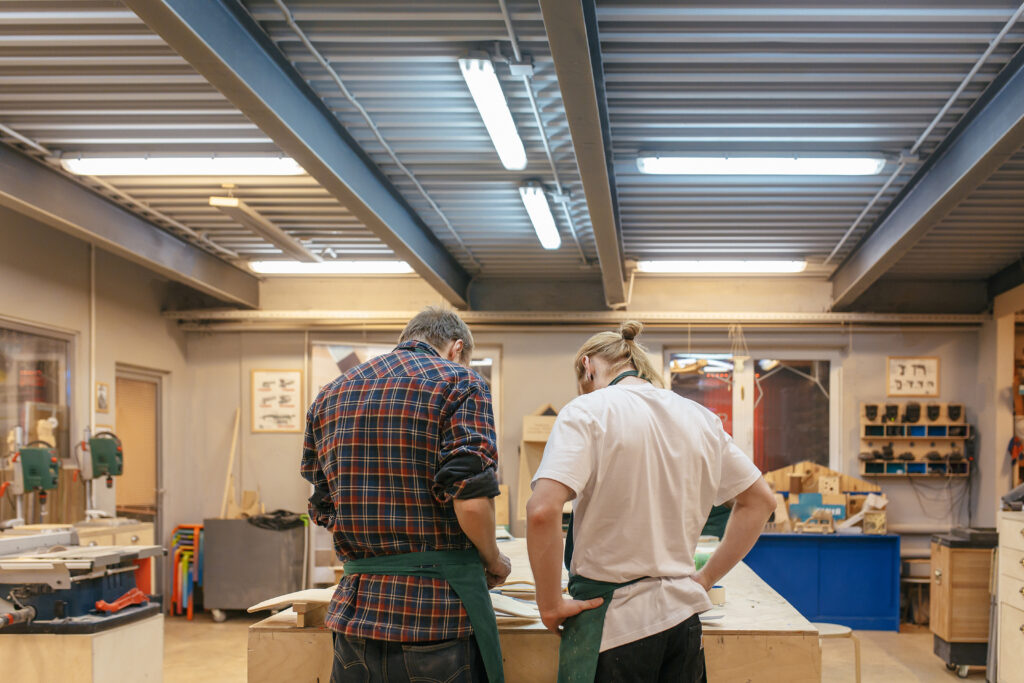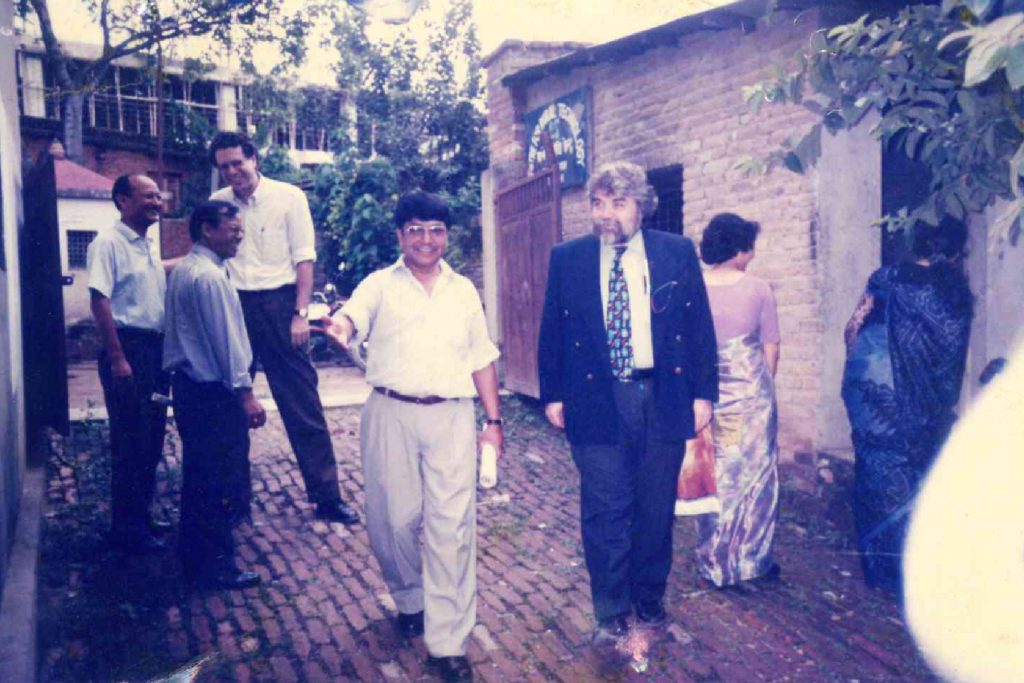Laying the Groundwork in India
Our earliest work centered on enabling small-scale infrastructure for underserved communities in South India—particularly in clean energy, sanitation, waste, and livelihoods. Russell pioneered what he called the Social Merchant Bank Approach®, a model that combined catalytic capital, local partnerships, and targeted technical assistance to help microentrepreneurs and small enterprises overcome financing and market barriers.
Over time, we supported dozens of early-stage enterprises—many of which were too small, too rural, or too community-rooted to be considered by conventional financial institutions and programs—providing them with bridge capital, recoverable grants, and other innovative financial tools. This work demonstrated how strategic, flexible finance could unlock solutions to deeply entrenched challenges like energy access, gender inequality, and informal sector employment.
Scaling Knowledge Through Global Advisory
Building on our on-the-ground experience in India, S3IDF also expanded its impact by advising large-scale international development programs. We served as a technical partner on initiatives supported by the Asian Development Bank, USAID, and others—working to bring inclusive entrepreneurship and last-mile delivery strategies into the design and implementation of energy access and market systems projects.
From guiding rural entrepreneurship efforts to strengthening inclusive supply chains and supporting productive use of energy frameworks, our advisory work helped global institutions integrate practical, equity-driven approaches that center local context. This consulting and knowledge-sharing work allowed us to scale the principles of our model beyond direct investment—shaping policy, building capacity, and amplifying impact.
Adapting to a Changing Landscape
As S3IDF matured, so too did our understanding of how systems change—and the kinds of support required to catalyze inclusive development. We launched a dedicated impact-first investing initiative focused exclusively on India, expanding our efforts to back early-stage enterprises with transformative potential.
This initiative provided flexible, risk-tolerant financing and hands-on mentorship to startups operating at the intersection of social impact and market-based solutions. We focused specifically on ventures in clean energy, sustainable agriculture, and circular waste management—sectors where innovation could simultaneously address poverty, climate change, and systemic inequality. These enterprises often worked in underserved or rural contexts, and our support helped them overcome early capital barriers and refine their models for scale and resilience.

Today: Catalyzing Circular Innovation in the U.S.
In recent years, we began exploring ways to apply our model and values to new contexts—particularly in the United States, where local initiatives working on circularity, equity, and sustainability often face similar gaps in early, flexible capital.
In 2025, S3IDF launched the ReCirculate Collective—a member-powered initiative to support U.S.-based nonprofit and for-profit efforts advancing circular and regenerative solutions. With a focus on 0% interest loans and light-touch, non-financial support, ReCirculate Collective builds on S3IDF’s core approach: creative, catalytic capital paired with values-driven partnership.
What Remains Constant
Throughout our history, several threads have remained central to who we are:
- An unwavering commitment to impact-first principles
- A belief in the power of small, under-recognized actors to drive big change
- A drive to innovate how philanthropic and financial tools are deployed
- A collaborative spirit that values trust, proximity, and community




